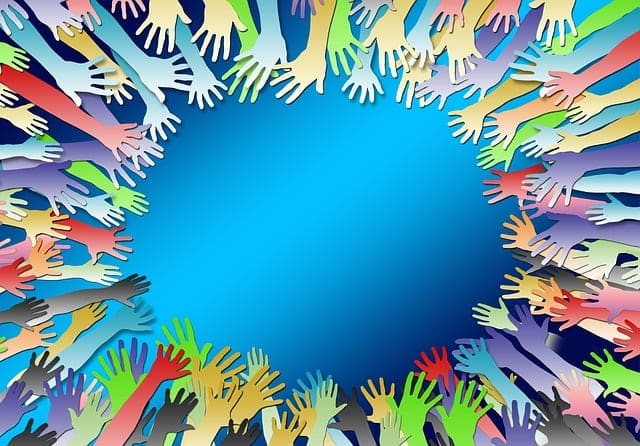Medical Document Translation for Migrants and Refugees: A Vital Service for Health and Wellness

Translation of medical documents for migrants and refugees. Introduction:
Medical document translation for migrants and refugees is an indispensable service to guarantee the health and rights of this vulnerable population.
Both immigrants and refugees face multiple barriers when they need health care in the countries they arrive in. One of these barriers is language. In this article we will explore the importance of translating medical documents for immigrants and refugees as well as the solutions available for these communities to overcome the language barrier.
The Importance of Medical Translation for Migrants and Refugees
Migrants and refugees often have to deal with a completely different healthcare system than the one they were used to in their home countries. In many cases, the language barrier further complicates access to needed medical services. This is where Medical Document Translation for Migrants and Refugees comes in, providing a solution for doctors and patients to communicate effectively.
Medical documents are essential to ensure that people receive proper treatment. These documents may include medical records, prescriptions, laboratory test results, previous diagnoses and treatment plans. For migrants and refugees, being able to translate these documents into the language of the country of origin can be a matter of life and death.
Cases in which medical translation is essential:
- Chronic diseases: Migrants and refugees suffering from chronic diseases such as diabetes, hypertension or HIV require constant medical follow-up. Accurate translation of your medical records ensures continuity in your treatment.
- Maternal and neonatal health: Migrant and refugee women are a particularly vulnerable population. Translation of your records ensures adequate monitoring during pregnancy and delivery.
- Immunizations and medical history: It is vital that health professionals have access to complete and translated vaccination records and medical histories to avoid risks.
Challenges in Translating Medical Documents for migrants and Refugees.
Medical Document Translation for Migrants and refugees process is not simple and faces several challenges, one of the most important of which is the cultural difference. Diseases and symptoms may be perceived differently depending on the patient’s country or culture. This is why these nuances must be taken into account in medical translations.
Another major challenge is confidentiality and ethics. As these are personal documents in many cases (such as medical records), it is essential that the translation agency has a code of ethics to safeguard the patient’s personal information, especially for these vulnerable populations.
Finally, these documents have a very technical and specific vocabulary. For this reason, translators must be specialized in the medical field and constantly updated.
The Medical Translation Process
The medical translation process for migrants and refugees must follow a rigorous protocol to ensure accuracy and confidentiality. The following is a summary of the steps involved:
- Initial evaluation of the document: The original medical documents are reviewed to determine the specific terminology and type of translation required.
- Translation by medical experts: Medical translators translate using the appropriate medical language, ensuring that the meaning remains accurate and clear.
- Review and Quality Control: A second review ensures that there are no errors in the translation and that all terms are correct.
- Confidential delivery: Translated documents are delivered securely and confidentially to patients or medical staff, ensuring that privacy is maintained.
Benefits of a Professional Medical Translation Service for migrants and Refugees
Having a professional medical translation service for immigrants and refugees offers a number of benefits for both patients and healthcare systems. These are the most common benefits of a professional medical document translation for migrants and refugees:
- Greater confidence in the treatment: Patients who can read and understand their medical history in their own language feel more confident and secure in following recommended treatment plans.
- Better communication between physicians and patients: Accurate translation of medical documents enables physicians to better understand the patient’s history, facilitating more accurate diagnosis and treatment.
- Reduction of medical errors: Accurate medical translation reduces the risk of errors that can negatively affect the patient’s health.
- Equitable access to health care: Document translation ensures that migrants and refugees have the same access to health services as any other patient, regardless of their language.
Solutions Available for Medical Document Translation for migrants and Refugees
Currently, there are several solutions to address the need for medical document translation for migrants and refugees: Some of the most effective include:
- Companies specialized in medical translation: These companies have teams of highly trained translators in the medical field and offer customized services according to the patient’s needs.
- Assisted translation technology: The use of artificial intelligence-assisted translation tools can speed up the process, although it is always advisable to have an expert review the final translation.
- Collaboration with non-profit organizations: Some humanitarian organizations offer free or low-cost medical document translation services for migrants and refugees who cannot afford these services.
Conclusion
Medical document translation for migrants and refugees is a vital tool to ensure that all patients, regardless of their origin or language, receive quality medical care. In a globalized world, where migration and displacement are increasingly common, it is critical that healthcare systems and medical professionals prioritize accurate translation of documents to provide equitable and effective care.





